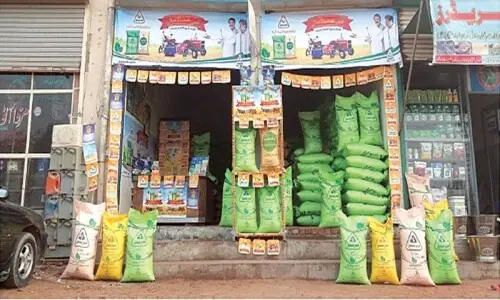PESHAWAR, June 7: Afghans living in the eastern parts of their war-ravaged country will receive the first consignment of fortified flour from Pakistan by next week. This was announced at a ceremony where the Micronutrients Initiative (MI), a non-governmental organisation, and the Pakistan Flour Mills Association, NWFP, signed a memorandum of understanding to this effect here on Thursday.
NWFP Health Minister Inayatullah Khan presided over the event, while Liaquat Ahmad Khan, president of the Sarhad Chamber of Commerce and Industry, Dr Noor Ahmad Khan of the MI, Naeem Butt of the PFMA and some Afghan government officials were present on the occasion.
Giving details about the project, Dr Noor Ahmad Khan said the Canadian government had provided a grant of Rs42 million for different initiatives to overcome micronutrient malnutrition in Afghanistan.
He said the project entitled the “Commercial Wheat Flour Fortification Project in Pakistan for the Wheat Flour Exported to Afghanistan” was one of the initiatives through which about 124,486 metric tons of flour would be fortified with iron and folic acid. He said this would benefit 113,169 people per month inside Afghanistan.
He said approximately 46,000 metric tons of flour were exported every month to Afghanistan from Pakistan, mostly from the NWFP.
He said the MI would support the project by providing micro-feeders and premix to about six mills in the NWFP, which would start wheat flour fortification within two days.
He said the premix would be provided to the mills free of cost on a bi-monthly basis with the understanding that after the withdrawal of assistance from the project the flour mills continued flour fortification through their own resources.
Dr Ahmad was of the view that micronutrient malnutrition was a major problem in Afghanistan, which has a high maternal mortality rate.
He said that micronutrient deficiencies, especially Iron Deficiency Anaemia (IDA), were a major contributor to deaths and diseases, particularly among women and children.
He said that micronutrient deficiencies badly affect the physical and mental abilities of the Afghan people, especially women during the child-bearing age and children who have already been impaired by poverty and war in the last three decades.
Dr Ahmad said the project would help the Afghan government in tackling IDA through a cost-effective solution like wheat fortification, wheat being the staple food of the Afghan population.
Provincial Health Minister Inayatullah Khan welcomed the move and hoped that it would help in preventing many diseases in Afghanistan. He asked the project managers to create awareness among producers and consumers alike about the importance of fortified wheat flour.































